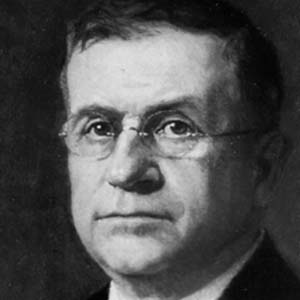Harold LeClaire Ickes served as Secretary of the Interior for thirteen years, earning the distinction of being the second-longest serving cabinet member in U.S. history. Under President Franklin D. Roosevelt, Ickes oversaw the Public Works Administration (PWA), one of the most successful New Deal programs.
Early Life and Political Career
Harold Ickes was born on March 15, 1874, in Franklin Township, Pennsylvania. He received both a B.A. and LL.D from the University of Chicago. After finishing law school, Ickes practiced law in Chicago and began his political as a Republican committeeman. Known as a liberal rather than an establishment Republican, Ickes supported Theodore Roosevelt’s Progressive party in 1912. He also campaigned for progressive Republicans Charles Evans Hughes (1916) and Hiram Johnson (1920). When FDR was campaigning and beginning to form his cabinet, his advisors encouraged him to involve a progressive Republican. While he was relatively unknown on the national level, Ickes fit the bill and eventually became FDR’s Secretary of the Interior.
Secretary of the Interior
As Secretary of the Interior, Ickes advocated strongly for the conservation of the country’s natural resources. As a result, he was often at odds with corporate interests. As head of the PWA, Ickes close oversight over the agency’s budget and efforts to root out corruption earned him the nickname “Honest Harold.” Under his leadership, the PWA successfully completed several massive public works projects, including the construction of the Triborough Bridge (New York), Lincoln Tunnel (New York), the Grand Coulee Dam (Washington), the Key West Highway (Florida).
Ickes enjoyed a close relationship with FDR and was one of only two cabinet members to serve throughout his presidency. During FDR’s re-election campaigns, Ickes became known as “Roosevelt’s hatchet man” because of his forceful, and often colorful, attacks on his Republican opponents.
Ickes was a lifelong supporter of the civil rights movement, previously serving as president of the Chicago NAACP. In the Interior Department, Ickes ended segregation in the cafeteria and restrooms. He also played a key role in desegregating the country’s National Parks. When the Daughters of the American Revolution prohibited African American singer Marian Anderson from performing in DAR Constitution Hall, Ickes stepped in. He later served as master of ceremonies at Anderson’s subsequent concert at the Lincoln Memorial.
Later Life
Ickes resigned as Secretary of the Interior in 1946 when President Harry S. Truman appointed an oil baron as undersecretary of the navy. After leaving politics, he published a column for the New Republic until he died in 1952. He was an outspoken critic of Senator Joseph McCarthy, political corruption, and the lack of strong leadership in both political parties. Ickes also wrote five books: New Democracy (1934), The Autobiography of a Curmudgeon (1943), and his three-volume Secret Diary (1953-54).








